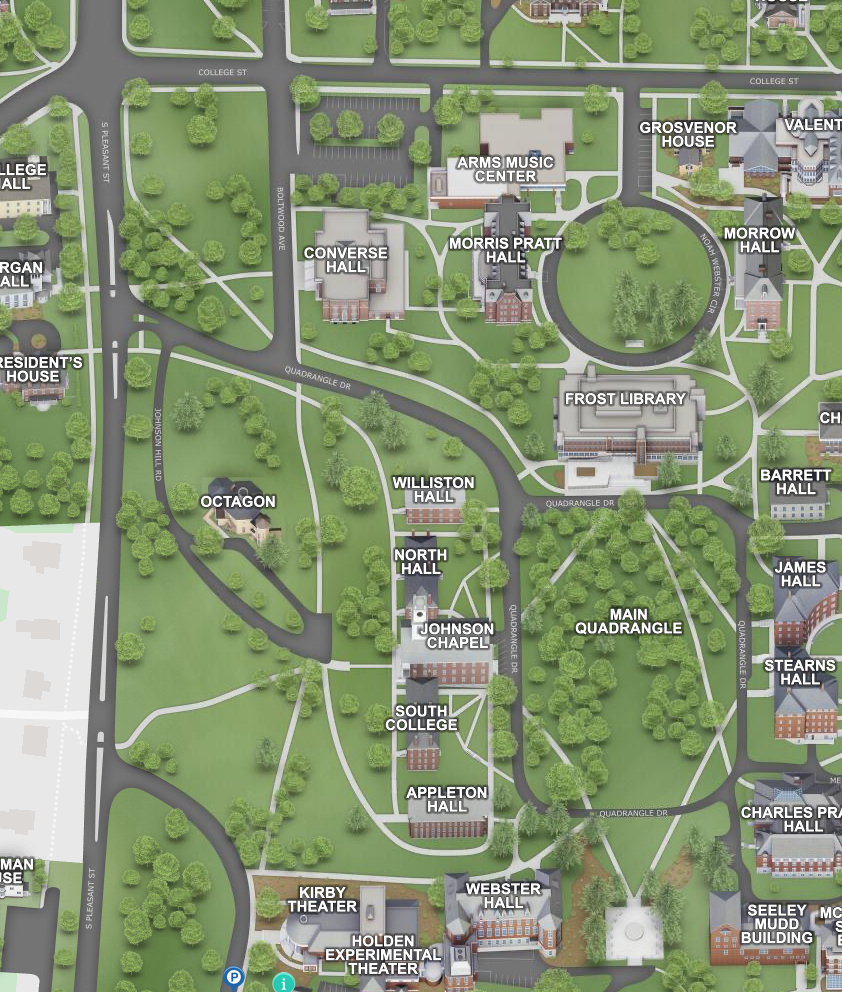Amherst College Statistics and Data Science Colloquium Series (2021-2022)
October 4
Bayesian compartmental models to assess the potential public health risks associated of vertical transmission of a parasitic infection with multiple transmission modes
Marie Ozanne (Mount Holyoke College)
Zoonotic visceral leishmaniasis (ZVL) is a serious parasitic, neglected tropical disease that is endemic in 98 countries. ZVL is primarily transmitted via a sand fly vector. In the United States, it is enzootic in some canine populations; it is transmitted from infectious mother to pup transplacentally, and vector-borne transmission is absent. This absence affords a unique opportunity to study (1) vertical transmission dynamics in dogs and (2) the importance of vertical transmission in maintaining an infectious reservoir in the presence of a vector. In this presentation, we will explore Bayesian compartmental models and reproductive number formulations to examine (1) and (2), providing a mechanism to plan and evaluate interventions in regions where both transmission modes are present. Through these models, we (1) provide evidence that pups born to diagnostically positive mothers during pregnancy are more likely to become diagnostically positive both earlier in life, and at some point during their lifetime, than those born to diagnostically negative mothers and (2) study the potential impact of a vertically maintained reservoir on propagating infection in a naive canine population through emergent vector transmission using simulation studies. We also present reproductive numbers to quantify contributions of vertically infected and vector-infected dogs to maintaining infection in the population. We show that a vertically maintained canine reservoir can propagate infection in a theoretical naive population in the presence of a transmission vector.
October 28
Using Electronic Health Records and Phenome-wide Association Studies for COVID-19 Research
Bhramar Mukherjee (University of Michigan): this talk was also part of the Connecticut Valley Colloquium Series
Electronic Health Records linked with other auxiliary data sources hold tremendous potential for conducting real time actionable research. However, one has to answer two fundamental questions before conducting inference: “Who is in my study?” and “What is the target population of Inference?”. Without accounting for selection bias one can quickly produce fast but inaccurate conclusions. In this talk, I will discuss large-scale association studies across multiple phenotypes, namely Phenome-wide association studies (PheWAS) that have gained traction in the genetics and medical informatics world. I will present several applications of this tool in genetics, cancer and for identifying risk factors for COVID-19 hospitalization and mortality. I will further discuss a statistical framework for jointly considering selection bias and phenotype misclassification in such analyses. This is joint work with Lars Fritsche, Lauren Beesley and Maxwell Salvatore at the University of Michigan School of Public Health.
Background
Talks in the Statistics and Data Science Colloquium are free and open to the public. They are intended to be accessible to a broad audience with some background in statistics and data science. Junior and senior statistics majors are expected to attend talks in the SDS Colloquia. Please reach out to Professor Nicholas Horton in case of conflicts.
Logistics
Seeley Mudd Hall is located at the southwest corner of the first year Quadrangle (31 Quadrangle Drive). Paid parking is available at the Amherst Town Common and Boltwood Drive (approximately 8 minute walk). PVTA Bus Service is available from the Converse Hall stop.

Copyright © 2025 Amherst College. All rights reserved.